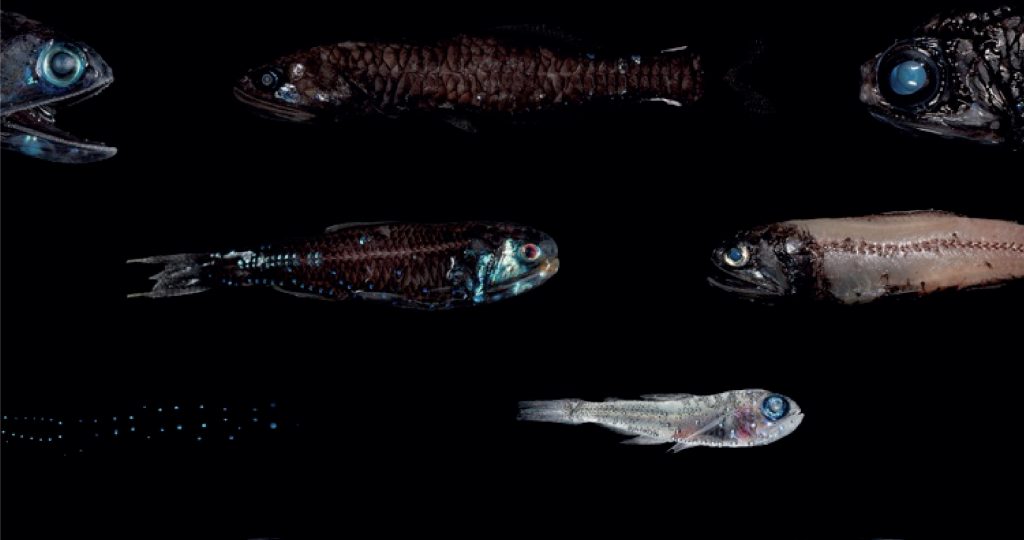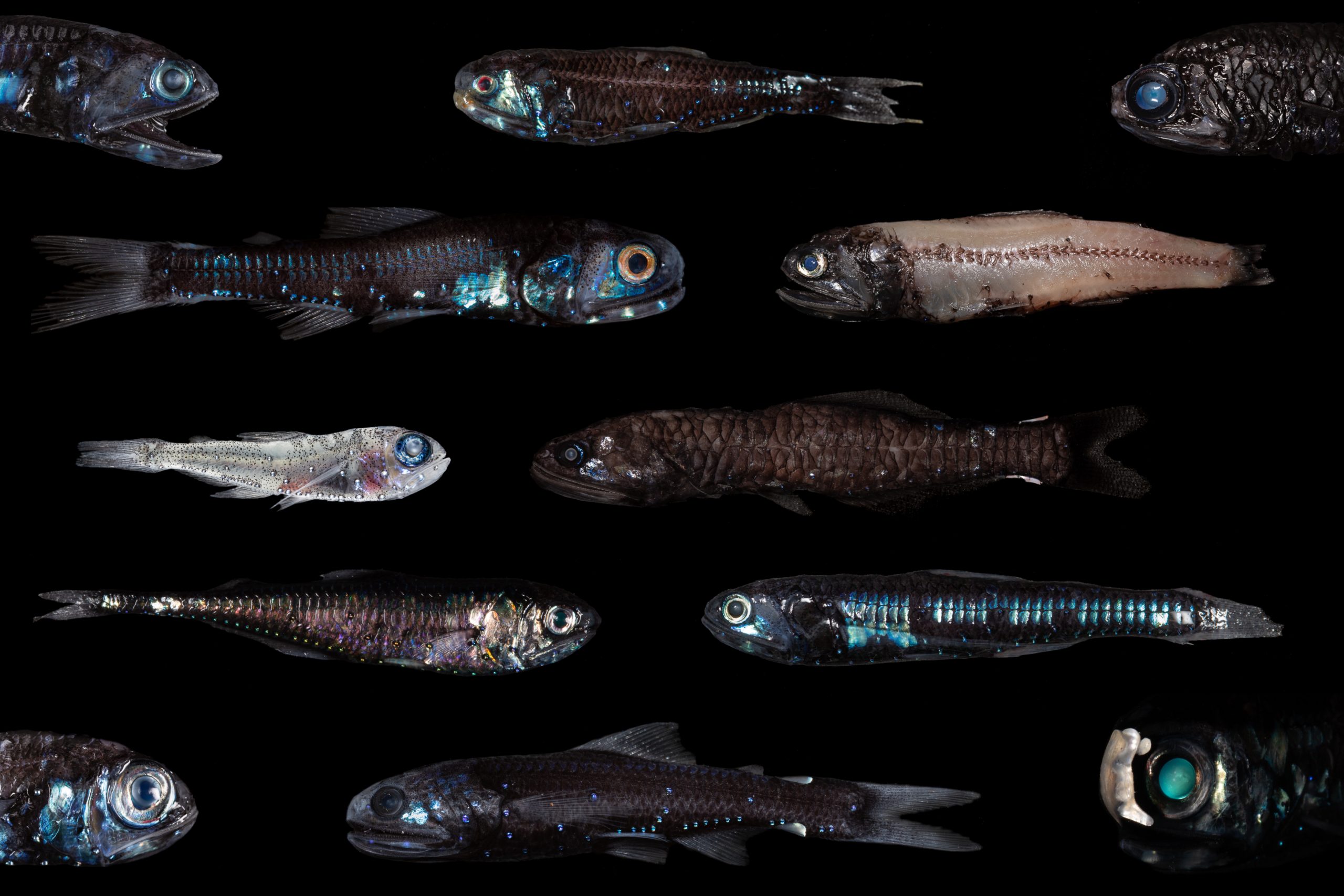Fishing in the Twilight Zone: Illuminating governance challenges at the next fisheries frontier November 23, 2020

Photo by Paul Caiger
Scientists have known since the 1970s that the ocean’s vast twilight zone could contain huge quantities of fish. Technology now exists make exploitation possible and interest is growing—not to provide food, but to be processed into aquaculture feed and nutritional supplements. Yet these fish play a key role in the global carbon cycle and marine food webs, so there are considerable risks in developing commercial fisheries in the twilight zone. Scientific knowledge is currently insufficient to support effective management and existing governance mechanisms are ill-equipped to regulate a fishery of such global significance.
A new report co-authored by OTZ team member Aria Finkelstein and published by the Institute for Sustainable Development and International Relations (IDDRI) addresses the current status of scientific research and fishery development of the twilight zone. It summarizes the existing regulatory framework for the management of midwater fisheries in areas beyond national jurisdiction and assesses some possible approaches to governance. These include regulation through regional fisheries management organizations, environmental impact assessment and management measures under a future international treaty on biodiversity beyond national jurisdiction, and a moratorium on mesopelagic fishing.
Key findings include:
- The mesopelagic or “twilight” zone plays a critical role in the global carbon cycle and marine food webs, but there are considerable gaps in our scientific knowledge.
- There is growing interest in exploring commercial fisheries in the mesopelagic zone, yet current governance frameworks may not be equipped to manage a new fishery with unique characteristics.
- The UN Convention on the Law of the Sea and Fish Stocks Agreement require States to cooperate to manage fisheries, but States, acting through regional fisheries management organizations (RFMOs), have been slow to integrate biodiversity into management processes.
- A future agreement on high seas biodiversity could strengthen environmental assessments and provide for new management tools, such as marine protected areas (MPAs).
- In the near term, a moratorium on mesopelagic fishing in international waters would allow for the development of scientific knowledge and appropriate governance mechanisms.







